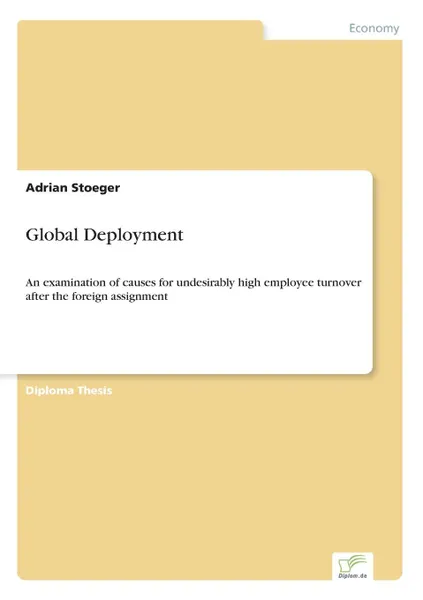Global Deployment 12+
📗 Inhaltsangabe:Abstract: This thesis has been written in cooperation with the human resource department of a top business consultant. The Global Deployment country manager worried about a higher turnover rate among employees back from foreign assignments (former expatriates) than the average employee fluctuation in the company. Cross company research indicates that an average 25 % percent of repatriates leave their company in the year following repatriation and up to 50% in a period of three years. This thesis has two main goals: 1. Finding out possible reasons for high turnover after repatriation 2. Identify measures likely to lower turnover after repatriation In order to achieve this, foreign assignments are first placed in the context of the employee. The main question here is what happens to the employee in the process of the foreign assignment (pre-departure to re-entry) and how he possibly manages it. This covers diverse aspects from cultural problems to financial aspects as well as the employees expectations. (See detail in summary, Part C) The second step is to place foreign assignments in the context of the company. Why foreign assignments, what are its benefits and disadvantages. Do companies really take advantage of the full potential of their repatriates? How do most companies handle their foreign assignments? (See detail in summary, Part D) Having defined the whole range of causes for high turnover, the last part of the thesis suggests a strategic approach to for...
Мнения
